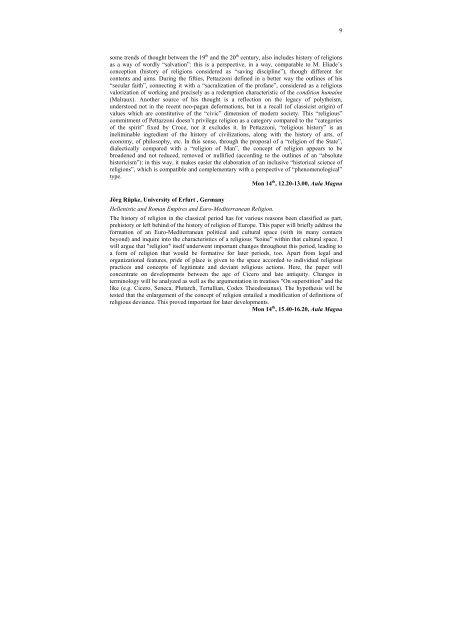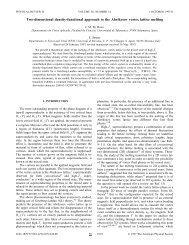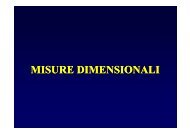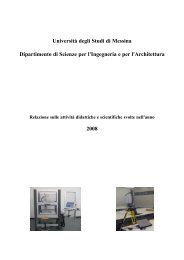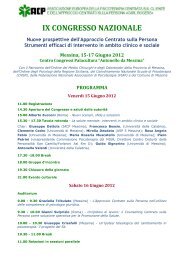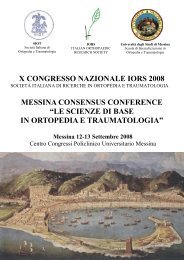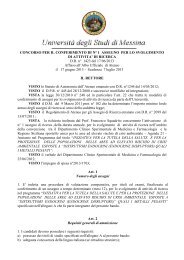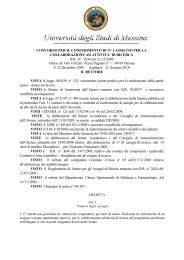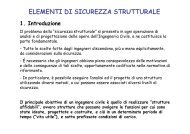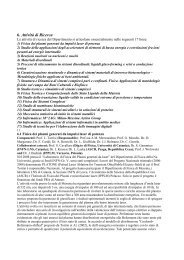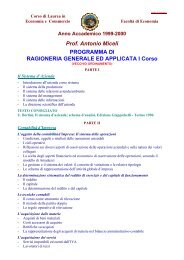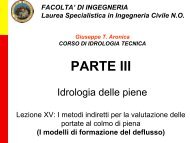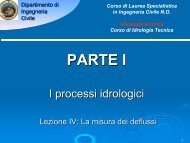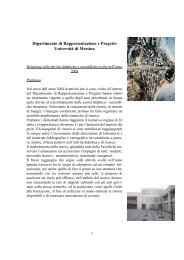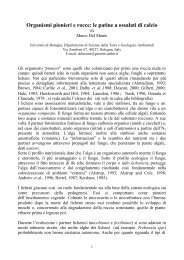PROGRAMME AND ABSTRACTS - Università degli Studi di Messina
PROGRAMME AND ABSTRACTS - Università degli Studi di Messina
PROGRAMME AND ABSTRACTS - Università degli Studi di Messina
You also want an ePaper? Increase the reach of your titles
YUMPU automatically turns print PDFs into web optimized ePapers that Google loves.
some trends of thought between the 19 th and the 20 th century, also includes history of religions<br />
as a way of wordly “salvation”: this is a perspective, in a way, comparable to M. Eliade’s<br />
conception (history of religions considered as “saving <strong>di</strong>scipline”), though <strong>di</strong>fferent for<br />
contents and aims. During the fifties, Pettazzoni defined in a better way the outlines of his<br />
“secular faith”, connecting it with a “sacralization of the profane”, considered as a religious<br />
valorization of working and precisely as a redemption characteristic of the con<strong>di</strong>tion humaine<br />
(Malraux). Another source of his thought is a reflection on the legacy of polytheism,<br />
understood not in the recent neo-pagan deformations, but in a recall (of classicist origin) of<br />
values which are constitutive of the “civic” <strong>di</strong>mension of modern society. This “religious”<br />
commitment of Pettazzoni doesn’t privilege religion as a category compared to the “categories<br />
of the spirit” fixed by Croce, nor it excludes it. In Pettazzoni, “religious history” is an<br />
ineliminable ingre<strong>di</strong>ent of the history of civilizations, along with the history of arts, of<br />
economy, of philosophy, etc. In this sense, through the proposal of a “religion of the State”,<br />
<strong>di</strong>alectically compared with a “religion of Man”, the concept of religion appears to be<br />
broadened and not reduced, removed or nullified (accor<strong>di</strong>ng to the outlines of an “absolute<br />
historicism”): in this way, it makes easier the elaboration of an inclusive “historical science of<br />
religions”, which is compatible and complementary with a perspective of “phenomenological”<br />
type.<br />
Mon 14 th , 12.20-13.00, Aula Magna<br />
Jörg Rüpke, University of Erfurt , Germany<br />
Hellenistic and Roman Empires and Euro-Me<strong>di</strong>terranean Religion.<br />
The history of religion in the classical period has for various reasons been classified as part,<br />
prehistory or left behind of the history of religion of Europe. This paper will briefly address the<br />
formation of an Euro-Me<strong>di</strong>terranean political and cultural space (with its many contacts<br />
beyond) and inquire into the characteristics of a religious “koine” within that cultural space. I<br />
will argue that "religion" itself underwent important changes throughout this period, lea<strong>di</strong>ng to<br />
a form of religion that would be formative for later periods, too. Apart from legal and<br />
organizational features, pride of place is given to the space accorded to in<strong>di</strong>vidual religious<br />
practices and concepts of legitimate and deviant religious actions. Here, the paper will<br />
concentrate on developments between the age of Cicero and late antiquity. Changes in<br />
terminology will be analyzed as well as the argumentation in treatises "On superstition" and the<br />
like (e.g. Cicero, Seneca, Plutarch, Tertullian, Codex Theodosianus). The hypothesis will be<br />
tested that the enlargement of the concept of religion entailed a mo<strong>di</strong>fication of definitions of<br />
religious deviance. This proved important for later developments.<br />
Mon 14 th , 15.40-16.20, Aula Magna<br />
9


